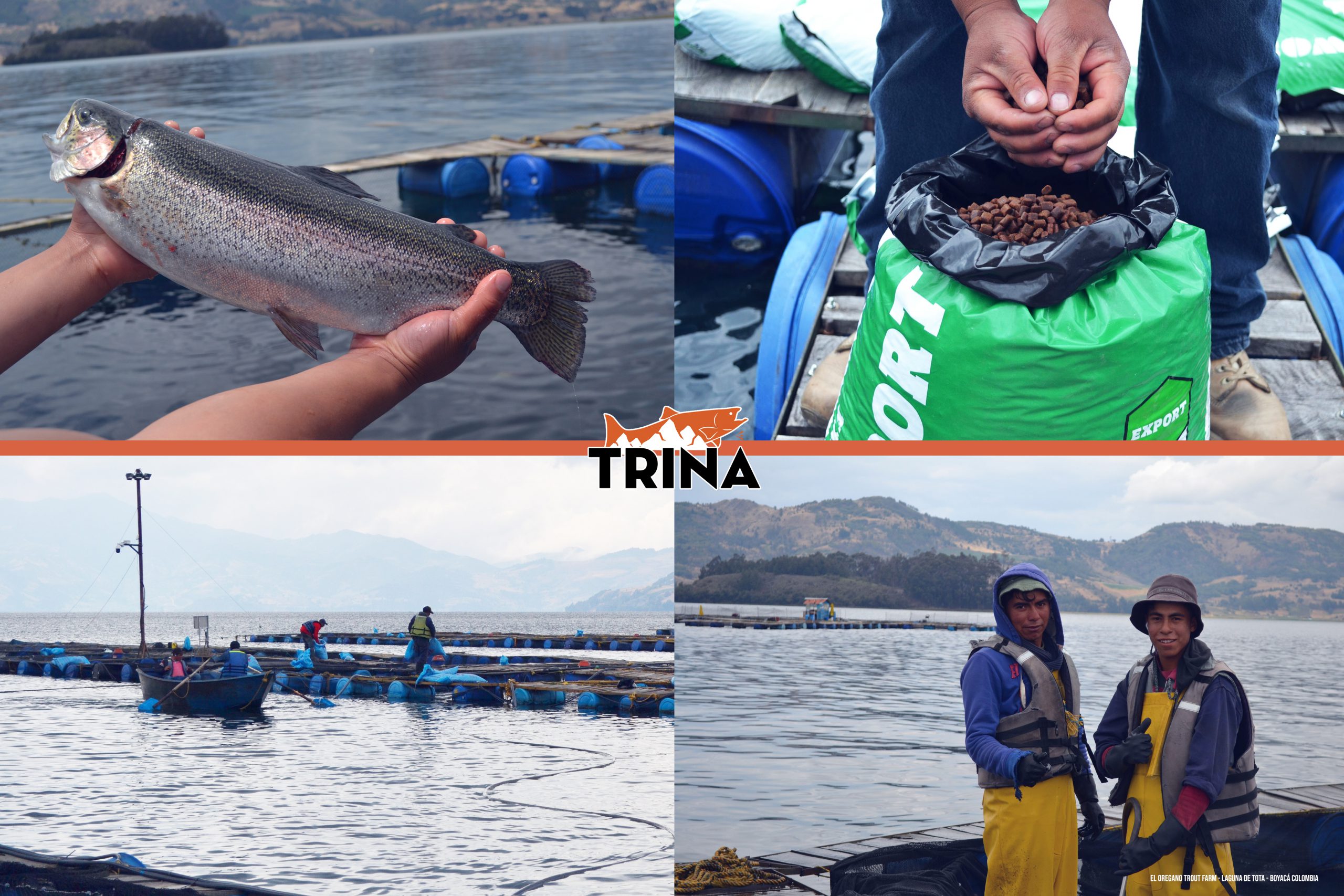TRINA
TRINA
El Dorado’s main focus is the establishment of Trina, SAS, which is already underway. El Dorado is currently securing loans for the expansion of existing facilities and will be adding additional sites in Boyacá and Antioquia.
This project has been reviewed and endorsed by the Colombian Environment and Sustainable Development Ministry and by Colombia’s Ministry of Agriculture and Rural Development. In addition, Cargill, Inc., through EWOS, considers this a priority development project and endorses Trina’s efforts.
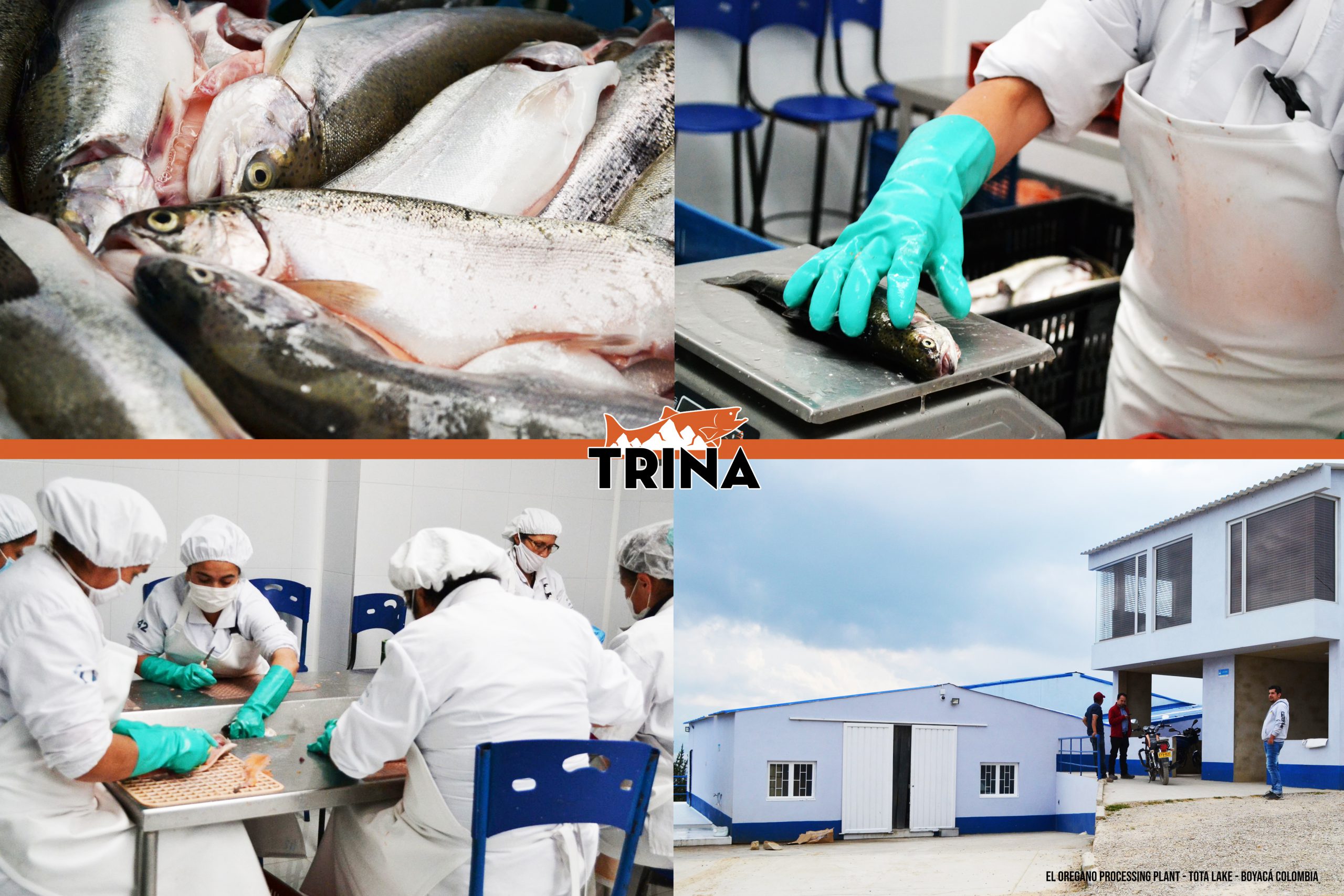
El Molino, SAS
El Molino is a small experimental farm for Induaqua in Monguí, Boyacá. It can currently produce fifteen tons of trout per month, but its main purpose is to study trout production and improve efficiency. Further, El Molino serves as an environmental and water monitoring station for CorpoBoyacá, the administration for the department of Boyacá. IA works closely with CorpoBoyacá on many matters related to trout production in the department. El Molino currently is powered in part by a small and an hydro system from the 19th century when the farm was used as a mill. Access to El Molino is posible with a four-wheel-drive vehicle. This will become a Trina trout farm.
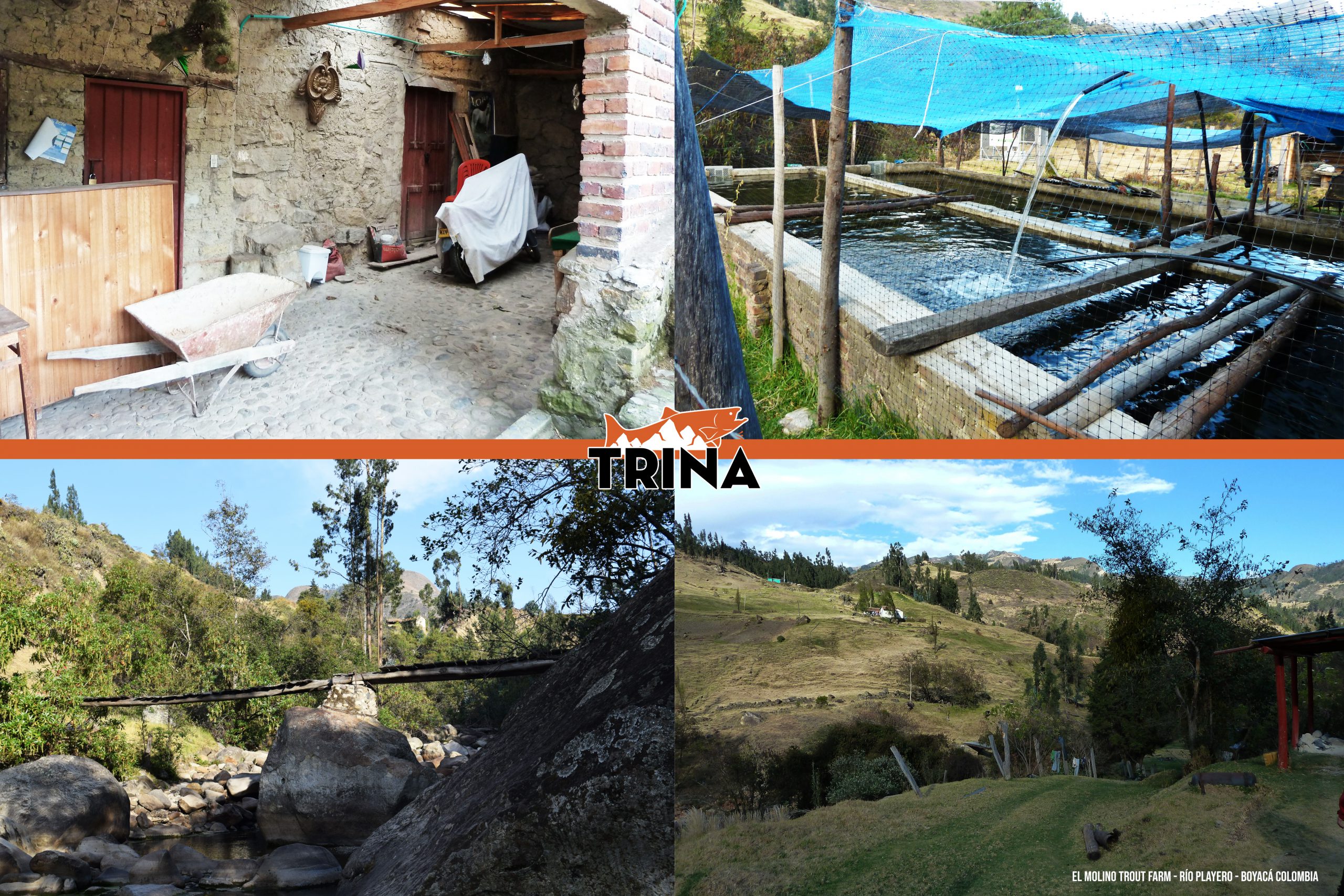
La Cusiana Spring, SAS
La Cusiana Spring, founded in 2014, is a pioneer in the use of recirculating aquaculture systems (RAS) in Colombia and is based near the mouth of the Cusiana River. It is owned by Trucha Surala and Mr. Barrera, and has been a successful example of rural capitalization. It produces around sixty tons of trout per month. The RAS system employed at La Cuisana Spring was designed and partially installed by Induaqua’s partner, Mr. Marcelo Eduardo Aqueveque Torres, and his Chilean company Ras Chile, Ltda. During Phase 1 of Trina, the RAS will be fully developed at the Cusiana Spring trout farm. Installation of the RAS is currently underway. EWOS feed provided by Induaqua is used at La Cusiana Spring. La Cuisana Spring will eventually become a Trina facility.
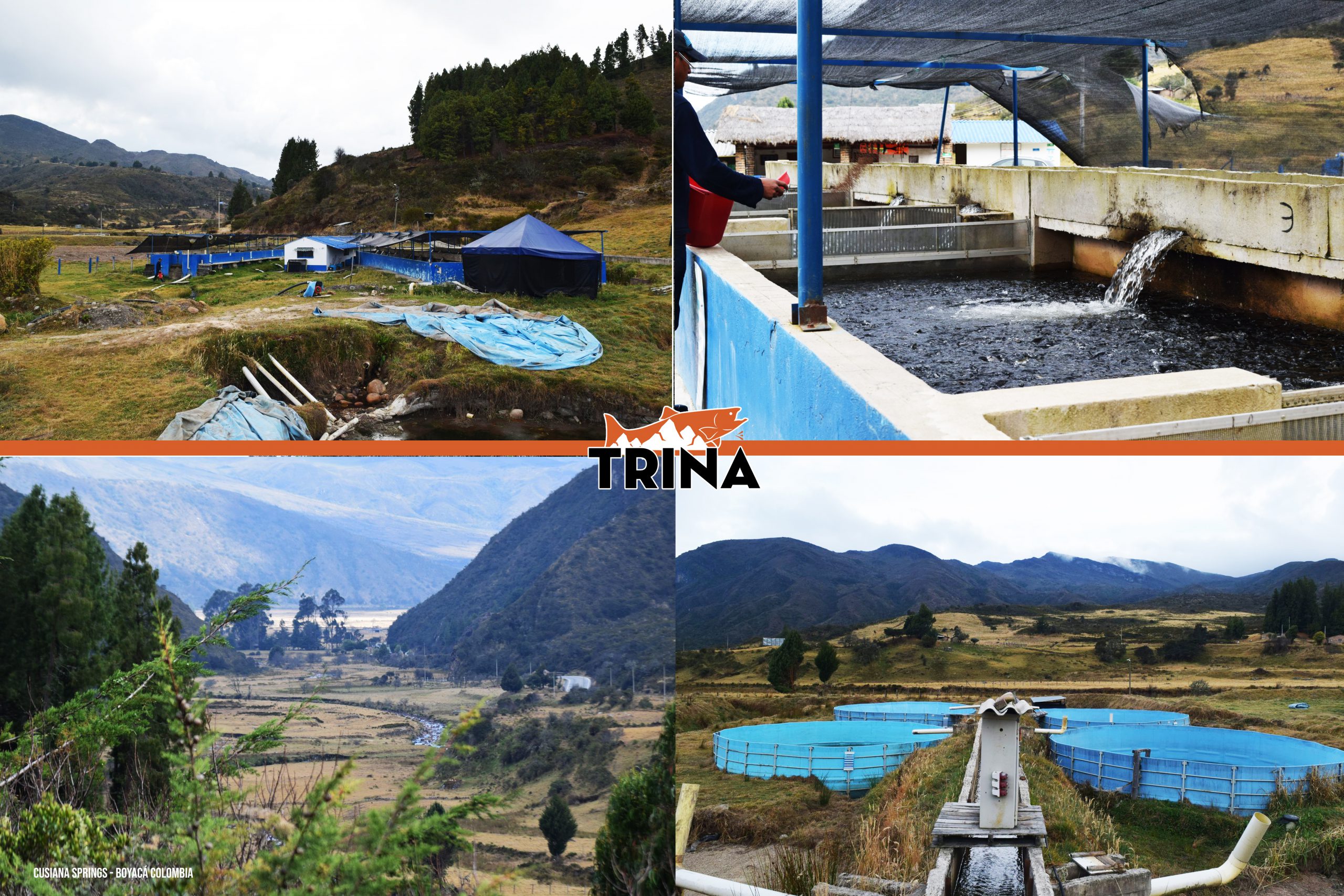
Rio Pez, SAS (aka Sonsón)
Rio Pez, also known as La Paloma Sonsón, is in Antioquia. Rio Pez was a pioneer in closed recirculation (RAS) technology. Located approximately two hours by land from Medellin, in Antioquia, it has its own processing plant and an installed capacity to produce twenty tons of trout per week. It is a source of development for the municipality of Sonsón, which was heavily impacted by violence. It also utilizes a natural water source from a nearby nature reserve. Sonsón is currently being modernized by Induaqua. In the near future, Sonsón will be a Trina farm and facility.

Piscitota, SAS
The Piscitota facility has a processing plant as well as a collocated eighty-tank production system in Lake Tota. It is one of the most successful trout producers in Colombia and is owned by a consortium of eight entities that includes Mr. Barrera.
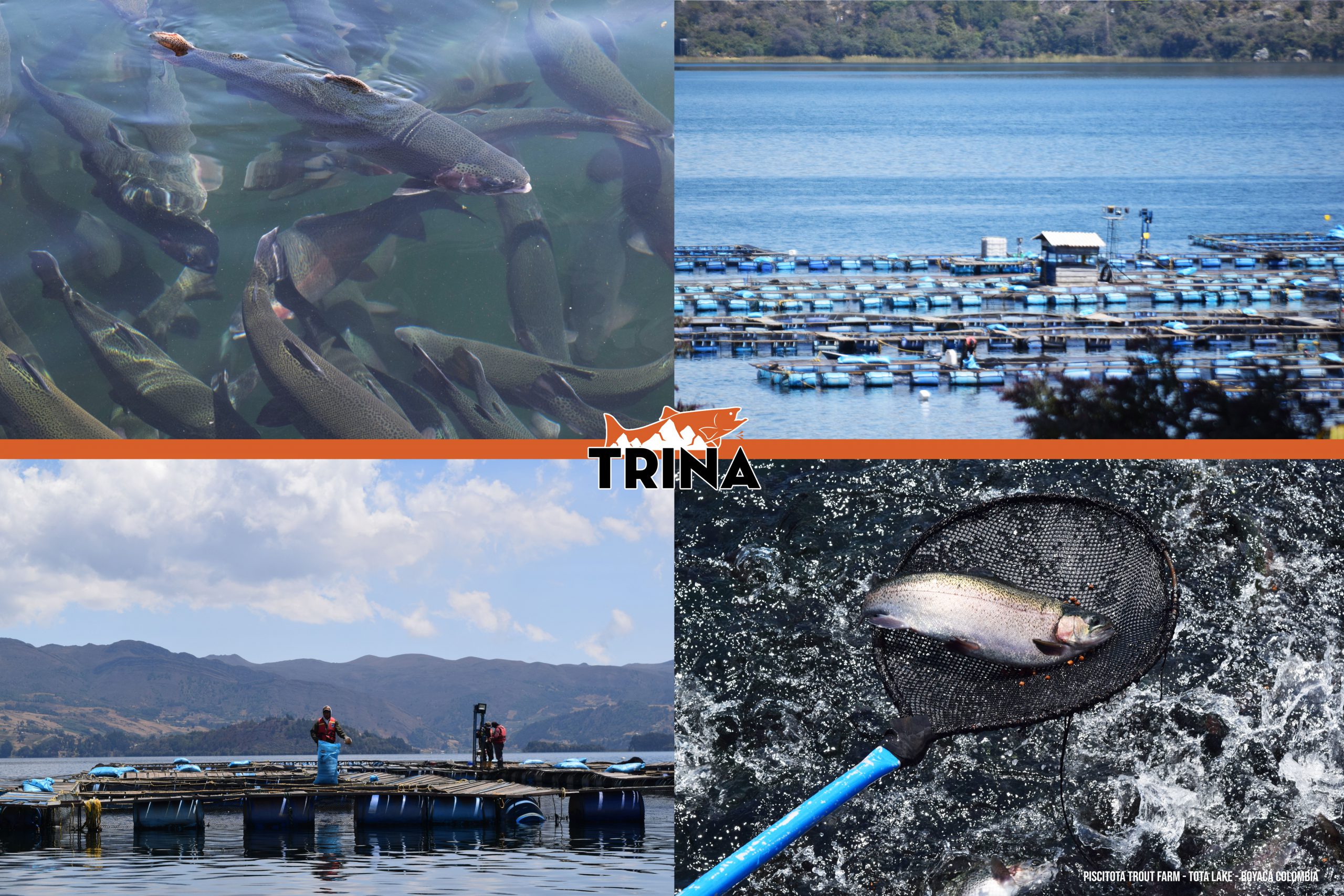
El Oregano
El Oregano was founded in Aquitine, Boyacá on the shores of Lake Tota. It is one of the largest trout producers in the country and has a certified processing plant for export, along with a system of floating cages. The fish farms at El Oregano are named Acuatrouta and Aloregano. They represent separate operations from the processing plant. El Tejar, a Barrera-family business, has been providing the fish farms with fingerlings for twenty-five years. Recently, IA has introduced the EWOS diet to the farms. The high-energy EWOS diet has helped to increase production and improve the quality of the finished product. El Oregano employs approximately twenty-five people at its farms and another twenty at the processing plant. The processing plant employs mostly women who have been affected by the violence within Colombia.
